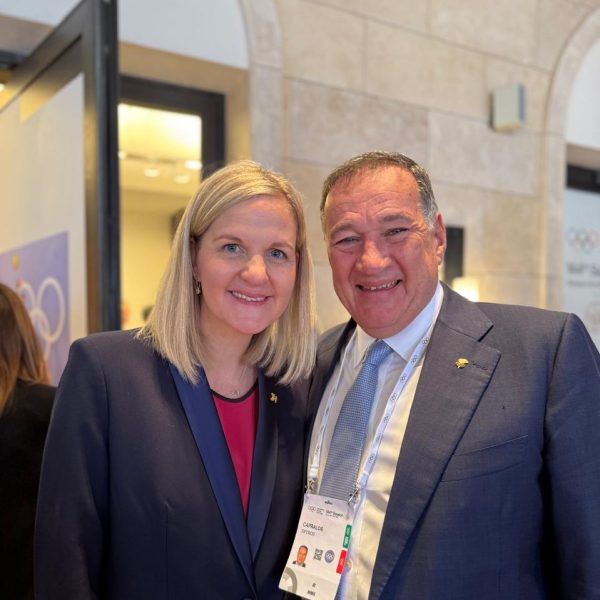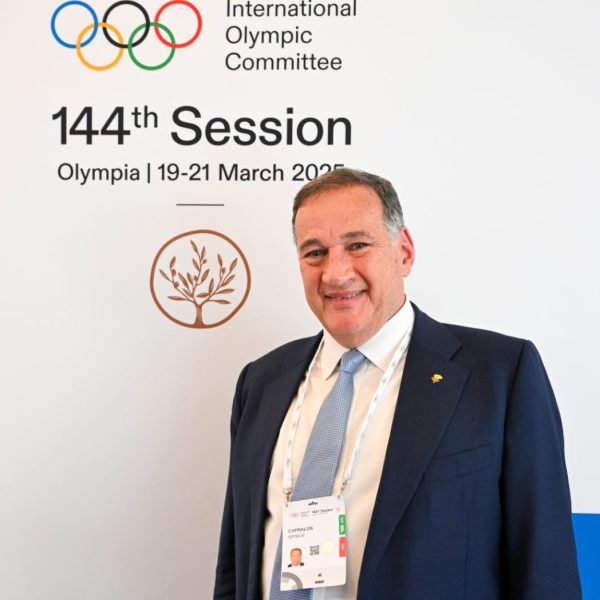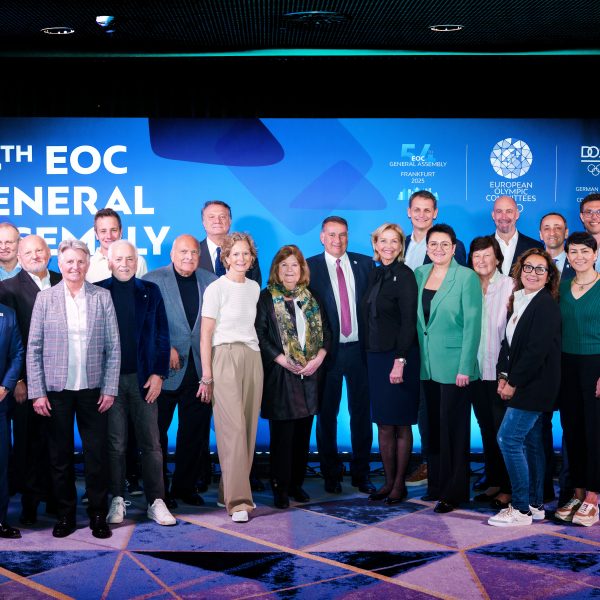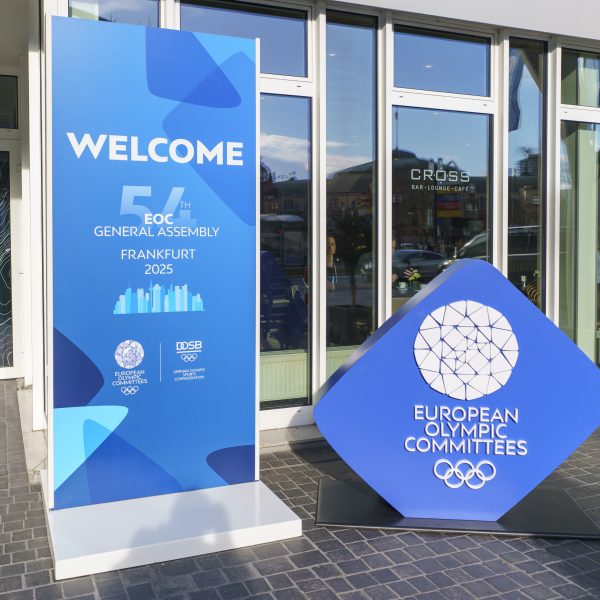CEO Dr Jan Lehmann represented the European Olympic Committees (EOC) at the Conference Promoting Safety, Integrity, Equality and Inclusion in Sport in Athens, where he provided an overview of gender equality in the Olympic Movement.
The Conference was organised by the Parliamentary Assembly of the Council of Europe (PACE) and the Hellenic Parliament, and featured sessions on safe sport, clean sport, and equality and inclusion in sport.
Dr Lehmann presented as part of the session on equality and inclusion in sport, then participated in a panel discussion moderated by PACE member Georgios Stamatis. The other panellists were French Paralympic and Sports Committee President and three-time Paralympic champion Marie-Amélie Le Fur, the President of Special Olympics Hellas Dionyssios Kodellas, the founder of Globall Nagin Ravand and Enlarged Partial Agreement on Sport Governing Board Gender Equality Rapporteur Ioanna Paraskevopoulou.
Dr Lehmann outlined the importance of gender equality and inclusiveness to the EOC, as enshrined in Strategic Agenda 2030.
He highlighted that progress has been made in the Olympic Movement, with Paris 2024 the first Olympic Games to offer gender parity in terms of athlete quotas, following on from the European Games Kraków-Małopolska 2023 where 48.5% of the competing athletes were female.
The EOC requires at least five of its elected 16 Executive Committee members to be of each gender, and Dr Lehmann underlined the success of this initiative in providing more opportunities for women in leadership roles. There are currently seven elected women on the EOC Executive Committee.
However, Dr Lehmann also noted there is more work to do in creating an inclusive level playing field in all areas of European sport, particularly increasing opportunities for female coaches and overcoming resistance towards women in leadership positions.
Only six National Olympic Committees (NOCs) in Europe have female Presidents, and according to 2023 statistics women account for 27% of Executive Board positions on European NOCs.
Dr Lehmann said: “The PACE Conference was a fantastic opportunity to present the status of gender equality in the Olympic Movement, and to hear examples of best practice from representatives of European institutions and other sporting organisations.
“While progress has been made and gender equality is of paramount importance for the EOC across all operational areas, we are under no illusions that there is a lot more than needs to be done to break down barriers, particularly in coaching and leadership positions.
“The EOC is fully committed to strengthening gender equality within our organisation and our events, and supporting NOCs to make further progress.
EOC President Spyros Capralos also attended the PACE Conference in his capacity as President of the Hellenic Olympic Committee. A special award ceremony was held for Greece’s Olympic and Paralympic champions on 4 November, and President Capralos highlighted the success of the Olympic Games Paris 2024 during his address.



















